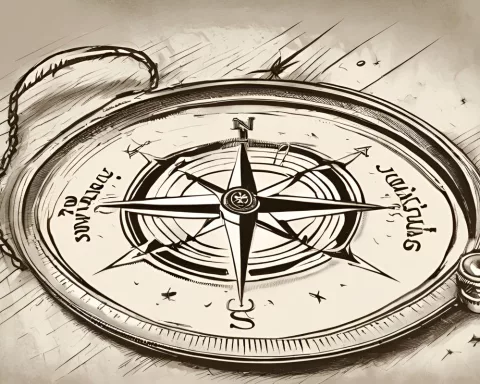The South African penitentiary system has come under intense scrutiny due to concerns over its effectiveness and security. Recent incidents, including the prison break of Thabo Bester – a convicted rapist and murderer – from Manguang Prison last year and the emergence of live videos on social media platforms like Facebook and TikTok, have fueled public alarm.
Shattering Perceptions of South African Prisons
South African prisons are typically seen as neatly dressed convicts who adhere to a strict routine within confined spaces. The prison escape of “The Facebook Rapist” earlier this year revealed a different picture. It was discovered that he wore civilian clothing and successfully ran businesses while incarcerated. Similarly, the case of Bester, who repeatedly left the prison grounds for private rendezvous with his accomplice, has exposed the unsettling reality of South African prisons.
“TikTok Prisoners” Lift the Veil
The emergence of “TikTok prisoners” has further exposed the truth behind South African prisons. Inmates possessing mobile devices with internet access is a common occurrence, and they routinely capture themselves on live videos without any apparent objections from fellow prisoners.
Concerned Citizens Speak Out
Ian Cameron, a concerned citizen, recently shared snippets of live videos originating from South African prison cells on Twitter. The videos, recorded by the inmates themselves on TikTok, showed prisoners engaged in mundane activities within their cells. Cameron expressed his frustration with the situation in a tweet directed at the Minister of Justice, Ronald Lamola, stating that “criminals in South Africa have more rights than law-abiding citizens.”
A Call for Action
Many South Africans have criticized the government for its incompetence and have demanded action. However, some individuals argue that prisoners should be allowed to keep their mobile devices. The controversy raises questions about the effectiveness of South Africa’s penitentiary system and whether authorities are adequately addressing the challenges it faces.
Balancing Inmate Rights and Public Safety
As the debate surrounding prisoners’ rights and privileges continues, it is essential to consider the broader implications for public safety and justice in South Africa. The use of social media by inmates could potentially lead to a more transparent and informed understanding of the nation’s prisons. However, it may also reveal disturbing trends that require urgent intervention and reform. Ultimately, the authorities must strike a balance between ensuring the rights and welfare of inmates while maintaining public confidence in their ability to keep society safe.












